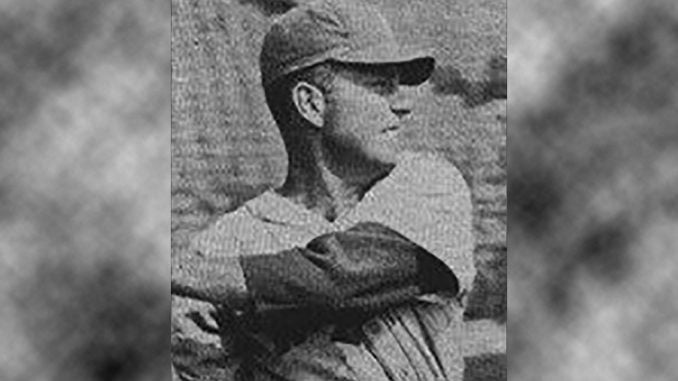
North State Journal’s 100 in 100 series will showcase the best athlete from each of North Carolina’s 100 counties. From Alamance to Yancey, each county will feature one athlete who stands above the rest. Some will be obvious choices, others controversial, but all of our choices are worthy of being recognized for their accomplishments — from the diamond and gridiron to racing ovals and the squared circle. You can see all the profiles as they’re unveiled here.

Stoke County
Les Burge
Had Les Burge come along at virtually any other time, he would have gotten a shot at playing in the major leagues. He might even have become a star. But because his opportunity arrived in 1942, just after America was thrust into World War II, he ended up in the military during the prime of his baseball career instead of at first base for the Brooklyn Dodgers.
The Stokes County native began his rise up the baseball ranks in 1938 when he hit .348 with 22 homers for the Class D New Bern Bears of the Coastal Plain League. Three seasons later, he caught the attention of Dodgers general manager Branch Rickey after leading the Southern Association in homers, RBIs and slugging percentage as a member of the Atlanta Crackers and being named the league’s MVP.
Burge signed with the Dodgers in 1942 and was groomed as a replacement for aging first baseman Dolph Camilli when he spent that season playing for the Montreal Royals of the Triple-A International League. He never got to play a game in Brooklyn, though. He was called to active duty before the start of the 1943 season and spent the next three years in the service.
Although Rickey continued to tout him as “a great hitter” upon his return and he hit .285 with 15 homers and 101 RBIs in 1946 for Montreal — where he was the teammate of a rookie named Jackie Robinson — Burge quickly realized that his opportunity had passed him by.
Instead of being promoted to the majors, he took a step down in the Dodgers’ organization by taking the job as player-manager of the Brooklyn’s Double-A affiliate in Fort Worth, Texas.
He spent two more seasons playing in the minors before retiring with a career .288 batting average in 1,181 games and four seasons of 20 or more homers, making him one of the best players never to have made it to the major leagues.



